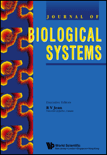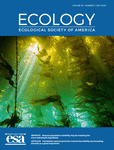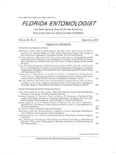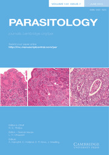
JOURNAL OF BIOLOGICAL SYSTEMS
Scope & Guideline
Championing high-quality research in ecology and applied mathematics.
Introduction
Aims and Scopes
- Mathematical Modeling of Biological Processes:
The journal emphasizes the development and application of mathematical models to describe biological phenomena, including disease transmission, population dynamics, and ecological interactions. - Interdisciplinary Approaches:
It promotes interdisciplinary research that combines mathematics, biology, and computational science to address complex biological questions, encouraging collaboration among mathematicians, biologists, and healthcare professionals. - Focus on Infectious Diseases:
A significant portion of the research is dedicated to modeling infectious diseases, exploring transmission dynamics, control strategies, and the impact of interventions such as vaccination and treatment. - Ecological Dynamics and Population Interactions:
The journal also covers research on ecological systems, including predator-prey interactions, competition, and the effects of environmental changes on species dynamics. - Optimizing Control Strategies:
Research often includes optimal control theory applications to improve health outcomes, manage diseases, and enhance ecological sustainability.
Trending and Emerging
- Complex Systems and Network Dynamics:
There is an increasing emphasis on modeling complex systems, particularly how networks of interactions affect biological outcomes, including disease spread and ecological stability. - Integration of Machine Learning Techniques:
Research incorporating machine learning and artificial intelligence techniques into biological modeling is gaining traction, providing new insights and enhancing predictive capabilities. - Behavioral Dynamics in Disease Modeling:
Emerging themes include the incorporation of behavioral dynamics into models of disease transmission, emphasizing the influence of public behavior and intervention strategies on epidemic outcomes. - Fractional and Delayed Dynamics:
There is a notable trend towards the use of fractional calculus and delay differential equations in modeling biological systems, allowing for more accurate representation of memory effects and temporal delays in biological processes. - Climate Change Impact Studies:
Studies examining the impact of climate change on biological systems, particularly in relation to disease dynamics and ecological interactions, are becoming increasingly relevant.
Declining or Waning
- Traditional Epidemiological Models:
There seems to be a waning interest in classical epidemiological models without incorporating modern complexities such as behavioral responses, environmental factors, or genetic variations. - Static Population Models:
Static or simplistic population models that do not account for dynamic environmental interactions or complex biological responses are being replaced by more sophisticated models that incorporate variability and stochastic elements. - Deterministic Models without Stochastic Considerations:
The focus is shifting away from purely deterministic models as researchers increasingly recognize the importance of stochasticity in biological systems, particularly in disease dynamics and population ecology.
Similar Journals

JOURNAL OF MATHEMATICAL BIOLOGY
Exploring the Intersection of Math and Biology.Journal of Mathematical Biology, published by Springer Heidelberg, is a leading international journal dedicated to the interdisciplinary field of mathematical modeling and its applications in biology. With an ISSN of 0303-6812 and an E-ISSN of 1432-1416, this journal has established its prominence within the academic community, reflected in its impressive rankings: Q1 in Agricultural and Biological Sciences (miscellaneous) and Q2 in both Applied Mathematics and Modeling and Simulation as of 2023. Covering a broad scope from ecological modeling to biomathematics, the journal serves as a crucial platform for researchers, professionals, and students alike to disseminate innovative work that bridges the gap between theoretical mathematics and biological phenomena. The journal, which spans from its inception in 1974 to 2024, emphasizes rigorous research while ensuring a high level of scholarly communication through its selective review process. With its solid reputation, the Journal of Mathematical Biology continues to significantly contribute to advancements in mathematical sciences and their essential role in understanding complex biological systems.

ECOLOGY
Navigating the complexities of ecology with scholarly precision.ECOLOGY, published by Wiley, stands as a premier journal in the field of ecology, providing a vital platform for the dissemination of innovative research and insightful reviews that span various aspects of ecology, evolution, behavior, and systematics. With an impressive impact factor and ranked Q1 in the most recent category quartiles, the journal enjoys a distinguished reputation among scholars, featuring in the 92nd percentile for its subject area according to Scopus. The journal's rigorous peer-review process ensures that the published studies contribute significantly to understanding complex ecological dynamics and advancing the field's theoretical frameworks. Researchers, professionals, and students alike benefit from the rich archive that extends from 1973 to 2024, fostering interdisciplinary dialogue and collaboration. Though not an open-access journal, ECOLOGY remains committed to maintaining high standards of scholarly communication, making it an indispensable resource for anyone dedicated to the ecological sciences.

BULLETIN OF INSECTOLOGY
Exploring the Intricacies of EntomologyBULLETIN OF INSECTOLOGY is a prominent academic journal published by ALMA MATER STUDIORUM, UNIV BOLOGNA, Italy, specializing in the field of Insect Science. The journal, with ISSN 1721-8861 and E-ISSN 2283-0332, has established itself as a vital resource for researchers and professionals interested in the diverse aspects of entomology and its applications. It ranks in the Q2 category for Insect Science as of 2023, placing it among the top journals in its field with a Scopus rank of 79 out of 181. The BULLETIN OF INSECTOLOGY is committed to disseminating high-quality research and innovative studies, facilitating open dialogue and collaboration among scientists. As an essential platform for sharing groundbreaking findings, it contributes significantly to the body of knowledge in agricultural and biological sciences, making it an invaluable asset for scholars and practitioners alike. With coverage from 2002 to 2024, this journal continues to foster advancements in entomological research and its importance in tackling environmental challenges.

Journal of the Royal Society Interface
Fostering Collaboration, Advancing Scientific FrontiersJournal of the Royal Society Interface is a premier interdisciplinary journal dedicated to the convergence of life sciences, physical sciences, and engineering. Published by the esteemed Royal Society in the United Kingdom, this journal serves as a dynamic platform for innovative research that pushes the boundaries of both fundamental and applied science. With a significant impact factor and ranked in the prestigious Q1 category across multiple domains, including Biochemistry, Bioengineering, and Biomedical Engineering, the journal consistently prioritizes high-quality contributions that innovate and inspire. Accessible to researchers, professionals, and students alike, it aims to cultivate a deeper understanding of complex interactions and synergies among biological and physical systems. From its inception in 2004 to its evolving knowledge contributions through 2024, the Journal of the Royal Society Interface plays a pivotal role in shaping future research directions and fostering collaboration across scientific domains.

FLORIDA ENTOMOLOGIST
Fostering Collaboration in Entomological InnovationFLORIDA ENTOMOLOGIST is a prestigious peer-reviewed journal dedicated to the advancement of entomological sciences, published by Walter de Gruyter GmbH. Since its transition to open access in 1994, the journal has become a vital resource for researchers, students, and professionals in the fields of Insect Science and Ecology, Evolution, Behavior, and Systematics. With an impact factor ranking high in its category—Q2 in Insect Science and Q3 in Ecology, Evolution, Behavior and Systematics—the journal showcases significant findings and contributions that shape our understanding of insect biology and its implications for ecological systems. The journal is indexed in Scopus, further establishing its relevance, with current rankings reflecting its competitive standing within Agricultural and Biological Sciences. Published continuously since 1982, FLORIDA ENTOMOLOGIST not only facilitates the dissemination of knowledge among entomologists but also encourages interdisciplinary collaboration, making it an essential publication for anyone invested in the scientific study of insects.

APPLIED ENTOMOLOGY AND ZOOLOGY
Pioneering insights for sustainable agricultural practices.Applied Entomology and Zoology, published by Springer Japan KK, is a pivotal journal in the field of insect science, with an impressive track record since its inception in 1966. This esteemed publication, bearing ISSN 0003-6862 and E-ISSN 1347-605X, contributes significantly to the understanding of applied entomology, emphasizing research that supports sustainable agricultural practices and the ecological conservation of insects. Ranked in the Q2 category (2023) for Insect Science with a Scopus rank of #65 out of 181, it is recognized for its rigorous peer-review process and high-quality contributions that push the boundaries of our knowledge. Although it does not currently offer open access, the journal remains an essential resource for researchers, professionals, and students eager to advance their understanding of the complex interactions between insects and their environment. With a focus on practical applications, it aims to bridge the gap between entomological research and real-world implications, fostering innovation and promoting informed decision-making within the scientific community.

BIOLOGICAL CYBERNETICS
Unraveling Complex Biological Systems through Computational InsightBIOLOGICAL CYBERNETICS is a premier journal published by SPRINGER, dedicated to advancing the fields of biotechnology and computer science through the lens of biological interactions. With an ISSN of 0340-1200 and an E-ISSN of 1432-0770, this esteemed journal has been a cornerstone of academic research since its inception in 1961 and is set to continue influencing the landscape of biological cybernetics through 2024. The journal currently holds a Q3 ranking in the Biotechnology category and a Q2 ranking in miscellaneous Computer Science according to the 2023 category quartiles, showcasing its credibility and impact in the interdisciplinary nexus of these fields. Although it does not provide open access options, researchers and students can engage with its innovative content that includes original research articles, reviews, and methodologies that explore the computational modeling of biological systems and the integration of artificial intelligence in biological research. With its strategic location in the United States and a robust publication record, BIOLOGICAL CYBERNETICS remains an essential resource for anyone looking to deepen their understanding and application of cybernetic principles within biological contexts.

PARASITOLOGY
Empowering researchers with critical knowledge in parasitology.PARASITOLOGY, published by Cambridge University Press, is a prestigious journal that has been at the forefront of research in the field of parasitology since its inception in 1908. This esteemed publication carries the ISSN 0031-1820 and E-ISSN 1469-8161, and its rigorous peer-reviewed articles provide insights into both fundamental and applied aspects of parasitic biology, infectious diseases, and host-parasite interactions. With a commendable impact factor, PARASITOLOGY ranks in the top quartile (Q1) for Animal Science and Zoology and holds Q2 rankings in both Infectious Diseases and Parasitology categories, indicating its significant influence and contribution to these disciplines. The journal's diverse scope allows for a broad range of research articles, reviews, and case studies, making it an essential resource for researchers, professionals, and students seeking to stay updated on the latest developments in the field. Based in the United Kingdom, PARASITOLOGY offers valuable access to critical research in an era where understanding parasitic diseases is more vital than ever, and continues to shape the future of this important scientific field.

Methods in Ecology and Evolution
Connecting disciplines to unravel ecological complexities.Methods in Ecology and Evolution, published by WILEY, is a leading journal in the fields of ecology, evolution, and environmental science, with an impact factor that reflects its high-quality research contributions. Since its inception in 2011, this journal has become a cornerstone for researchers and practitioners, offering a platform for innovative methodologies and transformative insights that advance our understanding of ecological and evolutionary processes. With a prestigious Q1 ranking in both Ecological Modeling and Ecology, Evolution, Behavior and Systematics, the journal stands out among its peers, being ranked #28 out of 721 in the Agricultural and Biological Sciences category and #4 out of 41 in Environmental Science. The journal's comprehensive scope encourages interdisciplinary collaboration, making it an essential resource for anyone working at the intersection of ecological research and data modeling. Although it does not offer open access, the wealth of knowledge within its pages is invaluable for developing effective conservation strategies and understanding complex biological systems.

EXPERIMENTAL AND APPLIED ACAROLOGY
Unraveling the Complexities of Mites for a Healthier TomorrowEXPERIMENTAL AND APPLIED ACAROLOGY is a leading international journal that serves as a premier platform for the dissemination of cutting-edge research in the fields of Ecology, Insect Science, and Medical applications related to acarology. Published by Springer, this esteemed journal has been pivotal in advancing our understanding of mite-related science since its inception in 1985, and it anticipates continued publication until 2024. With an impressive ranking in the Q2 quartile across multiple categories, including Ecology (Rank #154/461) and Insect Science (Rank #42/181), it firmly establishes itself as a significant contributor to the scientific community. Although not an Open Access journal, its rigorous peer-review process ensures high-quality publication standards, appealing to researchers, professionals, and students alike. Aiming to bridge gaps between experimental research and practical applications, EXPERIMENTAL AND APPLIED ACAROLOGY plays a crucial role in enhancing knowledge and discoveries related to acarology, highlighting its vital importance in ecology and health sciences.